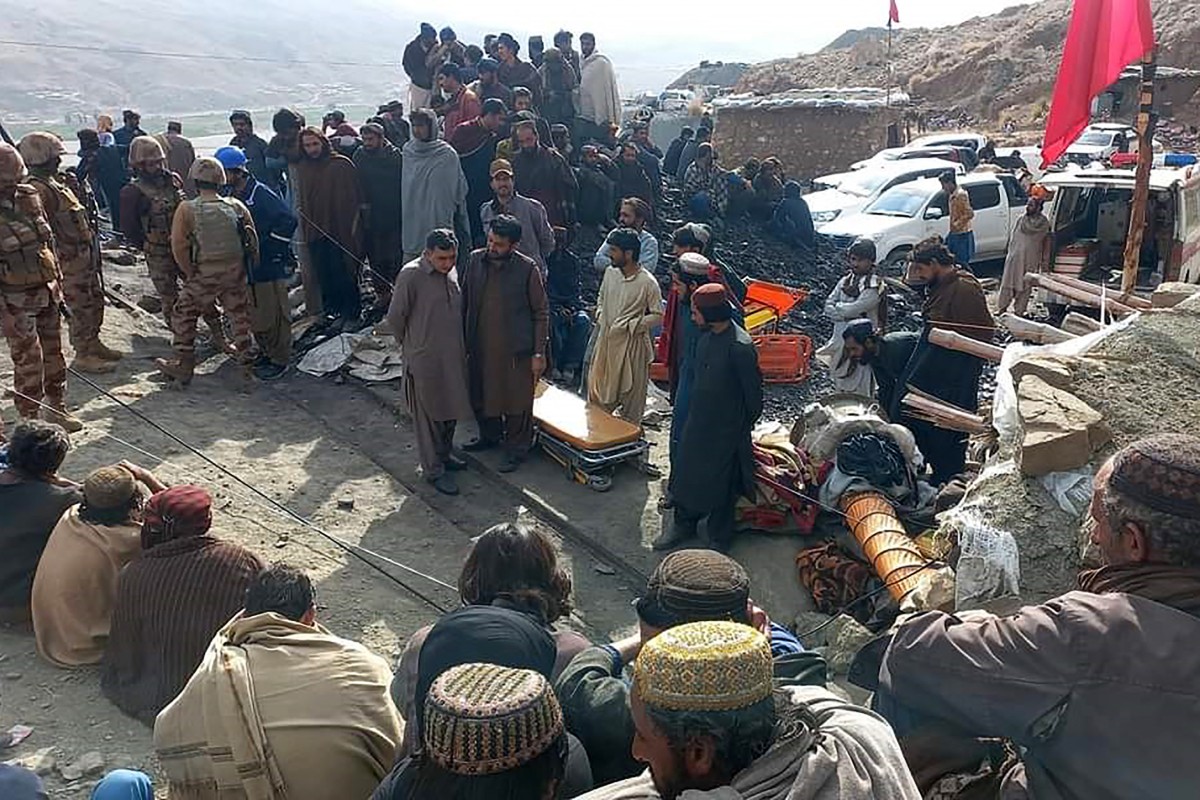
At least 12 miners have been killed in a gas explosion at a coalpit in Pakistan’s southwestern province of Balochistan.
The explosion at the private pit in Harnai, in the mining region of Khost, occurred late on Tuesday, leaving workers trapped about 240 metres (800 feet) underground in the subsequent cave-in. Rescuers worked overnight, recovering the bodies of the 12 miners by Wednesday.
Eight people attempting to rescue their colleagues were also trapped for several hours. They were later brought to safety – some of them unconscious – by a government rescue team.
Abdullah Shahwani, Balochistan’s director-general of mining, confirmed the death toll on Wednesday, saying the incident was caused by methane gas, a common cause of accidents in the coal-rich western areas of Pakistan.

Initially, it was thought that there were only 10 miners trapped when the mine, located about 80km (50 miles) east of the provincial capital, Quetta, collapsed.
Prime Minister Shehbaz Sharif expressed “profound sorrow and grief over the loss of precious lives”.
Deadly incidents are not uncommon in Pakistan’s mines, which are known for hazardous working conditions and poor safety standards.
In May 2018, 23 people were killed and 11 wounded after gas explosions tore through two neighbouring coal mines in resource-rich Balochistan, Pakistan’s largest but poorest province.
A total of 43 workers also died in 2011 when gas explosions triggered a collapse in another Balochistan colliery.
“This incident is neither the first nor will it be the last in Balochistan,” said Lala Sultan, head of the Balochistan Coal Mines Workers Federation.
“Safety measures at coal mines are scarcely implemented. While other provinces have some safety protocols in place, in Balochistan safety is utterly neglected.”







